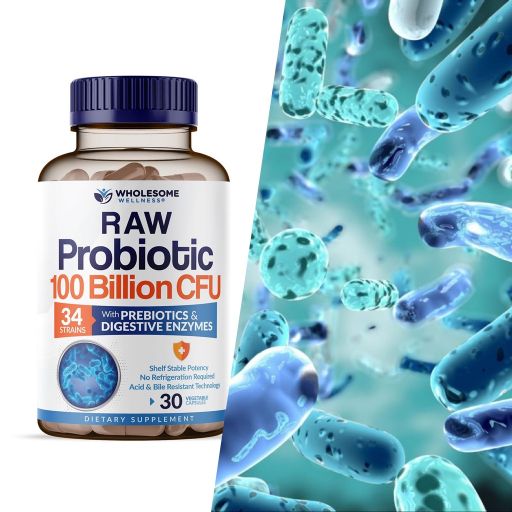Dietary supplements are one of the most sought-after products amongst fitness enthusiasts and normal individuals trying to maintain a healthy life. In the United States of America, the FDA doesn’t regulate supplements like prescription drugs.
This means some products might not match their labels. To ensure quality, choose supplements that are third-party tested. Also, consult a healthcare provider, registered dietitian nutritionist, or pharmacist before deciding.
There are many nutritional and medicinal supplements on the market. Picking the right one requires thought. Supplements might offer benefits, but not all are safe or effective.
What Are Dietary Supplements?
Before we discuss how to choose dietary supplements, let’s go over what they are in the first place.
In 1994, Congress decided dietary supplements are "foods" under the Dietary Supplement Health and Education Act (DSHEA). Unless they're labeled as pharmaceutical drugs, they're not for treating diseases.
So, what’s in a supplement? It can be:
●Amino acids
●Plant extracts, concentrates, or their active ingredients
●“Dietary substances” like enzymes and probiotics
●Herbs and botanicals
●Vitamins and minerals
●Any mix of these ingredients
Supplements come in all shapes and sizes: capsules, gummies, liquids, pills, tablets, softgels, and powders. Even teas and bars can count as dietary supplements. Now let’s look at the factors to consider when choosing dietary supplements.

Chelated vs. Non-Chelated
Spot the terms “chelated” and “non-chelated” on your mineral bottles? Here’s the scoop:
“Chelated” means the mineral is paired with another molecule—like an amino acid—to help your body absorb it better, says Greunke. Examples? Iron bisglycinate, zinc bisglycinate, chromium picolinate, and magnesium bisglycinate.
“Non-chelated” minerals are lone wolves. They’re not bound to anything, so they attract other molecules, making them less efficient at getting absorbed, explains Burdeos.
Research is a mixed bag. A 2014 study found chelated zinc (like zinc citrate and zinc gluconate) was better absorbed than non-chelated zinc.
Similarly, a 2019 study showed chelated magnesium glycerophosphate boosted blood magnesium levels more effectively than non-chelated magnesium oxide.
Evaluating mineral sources
Most minerals come from good ol’ food and water, but you can also find them in:
●Trace mineral drops
●Salts
●Electrolyte products
Experts say that nutrient competition is a very real thing. For instance, iron fights for absorption with zinc, calcium, copper, and magnesium. So skip multivitamins with iron.
If you’re taking iron and calcium, give them a couple of hours apart. Remember, too much iron isn't your friend, so check with your physician.
Electrolytes like sodium, magnesium, potassium, and calcium do the heavy lifting.
●Keep you hydrated.
●Get your heart pumping right
●Boost blood flow
●Regulate blood pressure
●Keep your bones happy
●Help balance hormones and adrenal health

Botanicals and herbal supplements
Botanical medicines (a fancy word for plant-based remedies) include herbs, plants, and their parts. They may also have some vitamins and minerals packed inside.
But before you dive into the world of botanicals, here’s what you should know.
●Avoid them if you’re allergic.
●They can be powerful (not always in a good way).
●They aren’t always standardized to specific active ingredients.
●Dosages can vary wildly by weight, age, or condition.
●Some boost the effects of medications, which could lead to side effects.
●Others can block medicines from working properly.
●They can be contaminated by pollution, soil, or during manufacturing.
Dosage
Figuring out how much supplement to take can feel like a puzzle. You need to consider several factors: your recommended dietary allowance (RDA) or adequate intake (AI), your age (since kids and adults require different doses), your weight (measured in grams per kilogram of body weight), and your sex.
Health conditions play a role, too, as well as whether you're taking any medications—over-the-counter or prescription. If you’re already using other supplements, like multivitamins, or getting nutrients from food, that affects your dosage as well.
The National Institutes of Health (NIH) is a great resource for understanding your RDA for nutrients like calcium and vitamin D.
Supplements that you don’t need
Some supplements, such as probiotics, are typically overhyped in advertisements. But according to experts and researchers, there isn't enough data to support the hype. Thus, you can avoid the following supplements altogether.
Green Powders
These powders look healthy, with all the flashy buzzwords.
Most of these products claim to be packed with whole food nutrients and pre- and probiotics. But that's just clever marketing—they're tricking you into thinking you can ditch your veggies.
Experts say the claims about energy boosts and digestion help are a bit of a stretch. There's not much research to back it up. A tiny 2009 study showed it might lower blood pressure but not weight.
Their advice? Eat real leafy greens instead.

Probiotics
Probiotics are all the rage. But, according to the NCCIH, the data doesn’t support their use for things like diarrhea or ulcerative colitis.
Mega-Anything
“Mega-dose” supplements? Sounds good, right? Not really.
Unless your doctor tells you otherwise, too much of a good thing can backfire. For instance, too much vitamin D can harm your kidneys, and an overload of vitamin C can mess with your digestion.
If your diet’s already giving you enough nutrients, don’t pile on supplements.
Buffered Creatine Monohydrate
Creatine monohydrate helps with recovery and reducing injury. But “buffered” or “advanced” creatine? Experts say they're more expensive and claim better absorption—but science doesn't back that up.
Dietary supplement selection is partly subjective and, therefore, not always the same for everyone. It is necessary to examine individual characteristics as well as the nutrition itself.
Some dietary sources may be productive, but there is no guarantee that all supplementation will bear the expected results, and, in fact, some may be harmful if taken excessively.
Always consult a healthcare provider before beginning any supplementation and ensure the appropriate dosage and type for your body is taken.
Use supplements that have been tested by independent facilities for safety, efficacy, and quality, and do not use those that appear too good to be accurate, as there is probably a reason for that.





